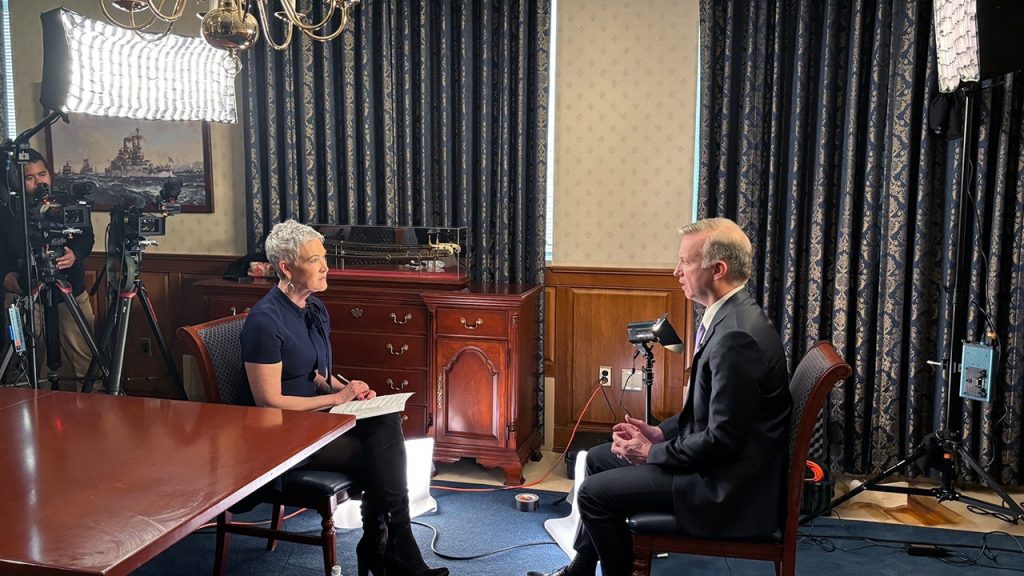The United States’ nuclear-powered submarines are vital to its military strength and deterrence against adversaries like China. In 2021, the Biden administration signed the AUKUS partnership with Australia and the United Kingdom, aiming to enhance information and technology sharing between the countries. As part of this agreement, the U.S. agreed to share nuclear submarine technology with Australia for the first time and sell several nuclear-powered attack submarines to the country. However, the U.S. is facing a shortage of submarines for itself, with old subs retiring faster than they can be replaced, and the shipbuilding industry being significantly behind schedule.
Senator Roger Wicker, a key figure in the Senate Armed Services Committee, supports the AUKUS deal but expresses concerns about the U.S. fulfilling its commitments to Australia. He has been advocating for years about the need to strengthen the U.S. industrial base, highlighting the urgency of the situation. The Navy currently requires 66 attack submarines but only has 49, leaving a significant gap that needs to be addressed. To meet its AUKUS commitments on time, the Pentagon needs to build 2.33 Virginia-class submarines per year, which is currently not being met due to the industry’s inability to keep up with the demand.
The U.S. Navy, led by Under Secretary Erik Raven, is taking steps to address the submarine shortage by partnering with private industry, state and local governments, community colleges, and non-profits to recruit 100,000 Americans to work in the submarine industry. The goal is to bring in new talent and build a stronger workforce for the shipyards and suppliers involved in submarine production. This effort is seen as a generational change in the industry, aiming to meet the increasing demand for submarines and catch up with the backlog that has accumulated over the years.
Non-profit organization BlueForge Alliance is leading the initiative to hire 100,000 Americans for submarine-related jobs, emphasizing the importance of these positions in serving the country and providing long-term, family-sustaining employment. The appeal to patriotism and purpose in contributing to national defense and security is a key motivator for potential recruits. Admiral John Aquilino, U.S. Pacific Commander, has warned of China’s growing capabilities, including a potential invasion of Taiwan in 2027, highlighting the importance of maintaining a strong submarine force to counter these threats.
Despite reports of China building a “Great Underwater Wall” to monitor submarine activity in the region, Raven remains confident in the capabilities of the U.S. submarine force to tackle any challenges. He stresses the need for a reliable and robust submarine industrial base in order to stay ahead of China and maintain the U.S.’ position as a leading naval power. The opportunities in the submarine industry provide good-paying and secure jobs for Americans across various skill sets, reinforcing the importance of building a skilled workforce to support national security objectives.


